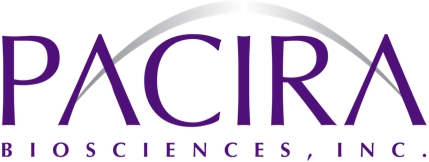New Study Shows Significant Reduction in Opioids, Length of Hospital Stay and Cost of Care for Patients Receiving EXPAREL® as the Foundation of a Multimodal Postsurgical Pain Regimen
Multicenter study in patients undergoing ileostomy reversal reinforces results from first IMPROVE study in open colectomy
All study patients underwent ileostomy reversal, a surgery performed to reconnect a section of small intestine. Compared to patients in the standard opioid-based treatment arm, patients undergoing the same procedure and receiving an EXPAREL-based multimodal regimen had:
- A 2.1 day reduction in median length of hospital stay (3.0 days in the EXPAREL group compared to 5.1 days in the IV opioid-based PCA group, respectively; P<0.05)
-
A
$2,800 reduction in mean hospitalization costs ($6,482 in the EXPAREL group compared with$9,282 in the IV opioid-based PCA group, respectively; P<0.05) - A 92 mg reduction in mean opioid consumption (20 mg in the EXPAREL group compared with 112 mg in the IV opioid-based PCA group, respectively; P<0.05)
“Gastrointestinal motility complications such as intestinal blockages
are common following ileostomy reversal, and can be triggered or
exacerbated by the use of opioids during and after surgery,” said
The study evaluated 27 adult patients who underwent planned ileostomy reversal procedures at three U.S. sites. Sixteen patients were enrolled in the EXPAREL-based multimodal group; 11 patients were enrolled in the opioid-based group.
The current study is the second in a series of open-label Phase 4
studies known as IMPROVE. In
“Continuing to demonstrate clinically meaningful benefits of EXPAREL,
such as shorter length of stay and lower hospital costs, is critical to
reinforcing the value of the product to the surgical community and
hospital administrators,” said
The Hospital Consumer Assessment of Healthcare Providers and Systems
(HCAHPS) survey is the first national, standardized, publicly reported
survey measuring and comparing patients’ perceptions of their hospital
experiences, including satisfaction with pain control. Since
The full IMPROVE ileostomy reversal study publication is available online here: http://www.dovepress.com/an-extended-pain-relief-trial-utilizing-the-infiltration-of-a-long-act-peer-reviewed-article-JPR
EXPAREL is indicated for single-dose administration into the surgical site to produce postsurgical analgesia.
About Pacira
About EXPAREL®
EXPAREL (bupivacaine liposome injectable suspension) is indicated for single-dose infiltration into the surgical site to produce postsurgical analgesia. The product combines bupivacaine with DepoFoam, a proven product delivery technology that delivers medication over a desired time period. EXPAREL represents the first and only multivesicular liposome local anesthetic that can be utilized in the peri- or postsurgical setting in the same fashion as current local anesthetics. By utilizing the DepoFoam platform, a single dose of EXPAREL delivers bupivacaine over time, providing analgesia with reduced opioid requirements for up to 72 hours. Pivotal studies have demonstrated the safety and efficacy of EXPAREL in patients undergoing bunionectomy or hemorrhoidectomy procedures and additional studies are underway to further demonstrate the safety and efficacy in other procedures. Additional information is available at www.EXPAREL.com.
Important Safety Information
EXPAREL is contraindicated in obstetrical paracervical block anesthesia. EXPAREL has not been studied for use in patients younger than 18 years of age. Non-bupivacaine-based local anesthetics, including lidocaine, may cause an immediate release of bupivacaine from EXPAREL if administered together locally. The administration of EXPAREL may follow the administration of lidocaine after a delay of 20 minutes or more. Other formulations of bupivacaine should not be administered within 96 hours following administration of EXPAREL. Monitoring of cardiovascular and neurological status, as well as vital signs should be performed during and after injection of EXPAREL as with other local anesthetic products. Because amide-type local anesthetics, such as bupivacaine, are metabolized by the liver, EXPAREL should be used cautiously in patients with hepatic disease. Patients with severe hepatic disease, because of their inability to metabolize local anesthetics normally, are at a greater risk of developing toxic plasma concentrations. In clinical trials, the most common adverse reactions (incidence greater-than or equal to 10%) following EXPAREL administration were nausea, constipation, and vomiting.
Please see the full Prescribing Information for more details available at http://www.exparel.com/pdf/EXPAREL_Prescribing_Information.pdf.
Forward Looking Statements
Any statements in this press release about our future expectations,
plans and prospects, including statements about our plans and
expectations regarding EXPAREL, and other statements containing the
words “believes,” “anticipates,” “plans,” “expects,” and similar
expressions, constitute forward-looking statements within the meaning of
The Private Securities Litigation Reform Act of 1995. Actual results may
differ materially from those indicated by such forward-looking
statements as a result of various important factors, including risks
relating to: the success of our sales and manufacturing efforts in
support of the commercialization of EXPAREL; the rate and degree of
market acceptance of EXPAREL; the size and growth of the potential
markets for EXPAREL and our ability to serve those markets; our plans to
expand the indications of EXPAREL to include nerve block; our plans to
continue to manufacture and provide support services for our commercial
partners who have licensed DepoCyt(e); our commercialization and
marketing capabilities; and other factors discussed in the “Risk
Factors” of our most recent Annual Report on Form 10-K for the fiscal
year ended
1. HCAHPS Fact Sheet; updated
Source:
Pacira Pharmaceuticals, Inc.
Jessica Cho, 973-254-3574
Jessica.Cho@pacira.com
or
Pure
Communications, Inc.
Susan Heins, 864-286-9597
sjheins@purecommunicationsinc.com

